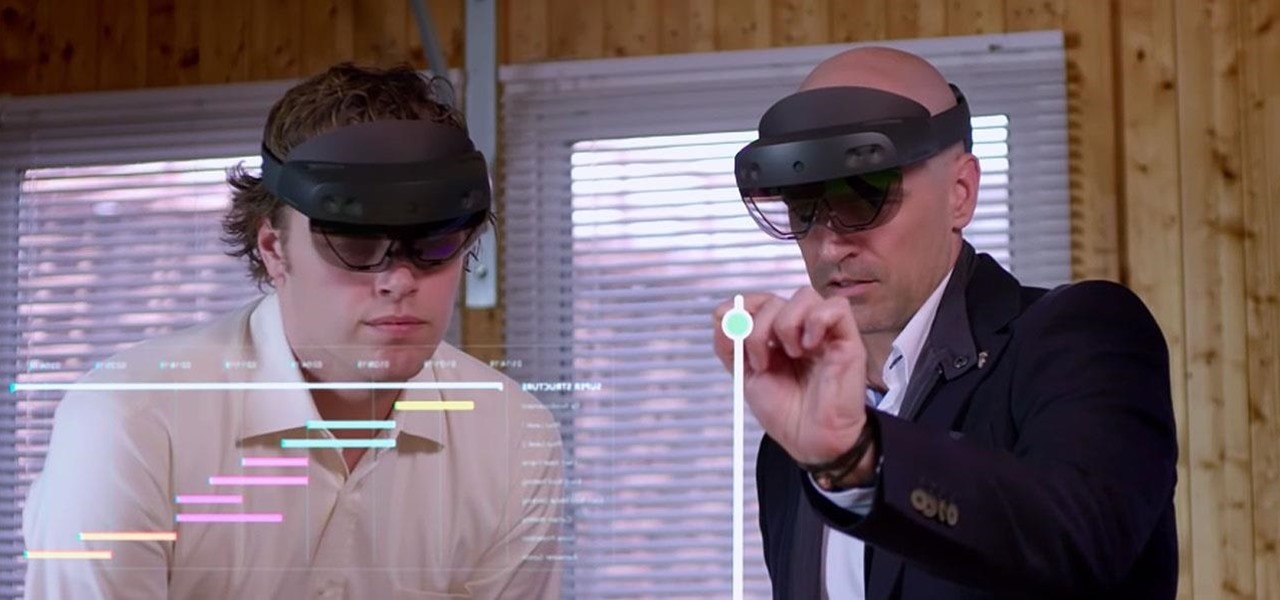By far the most significant development for AR in the coming months and years — the development that will drive AR adoption — will be our reliance upon the AR cloud.
Soon, you will see companies attempt to brand this technology with some moniker they've created (for example, Azure from Microsoft, the "Magicverse" from Magic Leap, etc.) that will allow them to market various unique features and approaches.
But, in general, it's all the same thing, data in the cloud tied to mobile devices that will allow AR devices to become the gateways for our avatars in this new landscape of reality layered with virtual interactive information.
What's particularly interesting about the early rumblings of this space are the mostly well-meaning noises made by some executives about keeping the AR cloud ecosystem "open." This sentiment is common in developing technology spaces. Kum-ba-ya, let's all work together to foster a collective approach to this emerging technology, etc. I support this spirit and attitude.
But it seldom ends up that way, at least when money is involved. And let's be clear, AR cloud represents a massive new revenue opportunity, whether the AR application is entertainment- or enterprise-oriented.


Whether bundled in with your wireless package or offered separately as a standalone subscription service, the income that could be created by charging for access to the AR cloud — as well as AR cloud "in-app" purchases — will deliver a substantial new stream of revenue. There are already companies, like Cognitive3D, designed to provide detailed analytics focused on how users in AR operate.
"If a significant open AR cloud platform emerged, it could be great for developers. You could take your service, like Uber for example, and put a button on the street that you click to call a ride. Like a virtual taxi stand. Or look at a poster for a concert and see a 'Buy Tickets' button right on it," says Anand Agarawala, the co-founder of Spatial.
"I'm thinking it will be a few years out, but could transform a number of industries. Think about how much advertising is littered around our urban environments. Now imagine that disappearing and becoming digital and hyper-personalized, like in Minority Report. Not that I'm in love with that idea, but you can see your future AR version of Instagram being powered by such embedded AR cloud ads."
And because there's so much money to be made and data to be mined, the first AR clouds will not represent a massive network of seamlessly interconnected nodes, experiences, and services. Instead, a variety of walled garden AR clouds will emerge.
Each will have a distinct value proposition. Some will be completely free and cater to those ethics fostered by the creators of the internet and world wide web — open and free is best. Others will be freemium, providing limited access with value-add purchases and/or in return for your personal data that they'll use to serve you ads. Others will be completely subscription only, allowing access to only those who have the monthly income to pay for the service.
By necessity, there will be corridors that allow us to interact across these AR clouds, but because of the walled gardens, our AR cloud experiences are likely to be just as varied as our streaming TV and movie experiences.
Consider how our digital content consumption works today. Some people consume free music and TV shows daily via pirated files, illegal streams. Some consume digital content via legal, publicly-funded radio and TV station streams. Others pay for the privilege to access highly curated and secure services like Spotify, Pandora, Netflix, Hulu, and others. AR clouds will be no different.
So how will we choose? I think the answer is security and convenience.
If you care about security and your data, it will likely be worth it to you to pay for a service that guarantees some level of protection. I wrote about this recently when referencing Apple's new Apple Card service and why the company is selling its role as a trusted custodian of user data and privacy rather than credit and payment services.
In a March survey of 200 startup founders and executives, Perkins Coie found that 61% were concerned about data security and consumer privacy in the development of immersive computing technologies.
It may be hard for some to wrap their mind around something that isn't ubiquitous just yet. Consider a world in which nearly all of your interactions involve looking through a wearable, camera-equipped device that maintains a lock on your location and purchases throughout the day, much like your current smartphone. However, the significant difference with AR smartglasses is that the device will give service providers and vendors an even more fruitful source of consumer data.
For example, instead of just tracking your purchases, location, and what websites you visit, mobile AR smartglasses of the near future will track what you are looking at in the real world via the convenience of eye tracking. Marketers often use the metaphor of "capturing eyeballs," but mobile AR smartglasses that include eye-tracking technology will be the first opportunity to literally "capture eyeballs" and mine the data related to what truly grabs a consumer's attention.
And aside from the eye tracking data, there will also be the question of which AR cloud you will trust "not" to access and sell your outward facing camera. Assuming that your chosen AR cloud service can protect you from hackers tapping into your glasses to get a peek at what you're looking at in your home and office, you will also need to trust that the service itself won't allow a human to take an occasional peek through your camera as you sit in your living room chatting with your family.
If this sounds far-fetched, consider that a recent investigation by Bloomberg revealed that recordings from Amazon Echo devices are being listened to by humans, with the explanation being that the humans are helping to train the Alexa voice-controlled software service. But whatever the intent of the listening, the fact is, that voice-controlled device in your home that you're trusting to limit itself to servicing your needs is also accessing some of your most private conversations, and humans are listening.
That seemingly innocuous breach of privacy becomes a lot more troubling when you consider the notion that a similar service on an AR cloud via your AR smartglasses. Data collection of such an assistant might very well include video footage of what you're looking at, as well as eye tracking data related to what you've looked at daily in the real world. Who will we trust with that information?
What we audibly say can often reveal our opinions on various topics. But at least those statements are filtered through our thought process and internal considerations before being uttered aloud. But when the data miners are recording your unconscious glances, as well as people, places, and things you're looking at, many times in ways that you're not even aware of, the bar for trust is about to be raised a lot higher.
So while many are talking about the AR cloud in the coming months and years as being enhanced by 5G speeds and amazing AR applications, ultimately, there is only one product feature that will be the most valuable differentiator: trust. The AR cloud that can best sell privacy and security is the AR cloud that will rain on all the others, and compel us to seek shelter within a trusted, secure, and convenient virtual space we carry with us everywhere.
Perception: The evolution of the AR Cloud will create a new virtual universe of AR opportunities.
Next Reality: AR's growth will take platform wars from app stores to the cloud, increasing privacy issues.
This post was created as a part of our Future of AR series. View the whole series.
Just updated your iPhone? You'll find new features for Podcasts, News, Books, and TV, as well as important security improvements and fresh wallpapers. Find out what's new and changed on your iPhone with the iOS 17.5 update.























Be the First to Comment
Share Your Thoughts